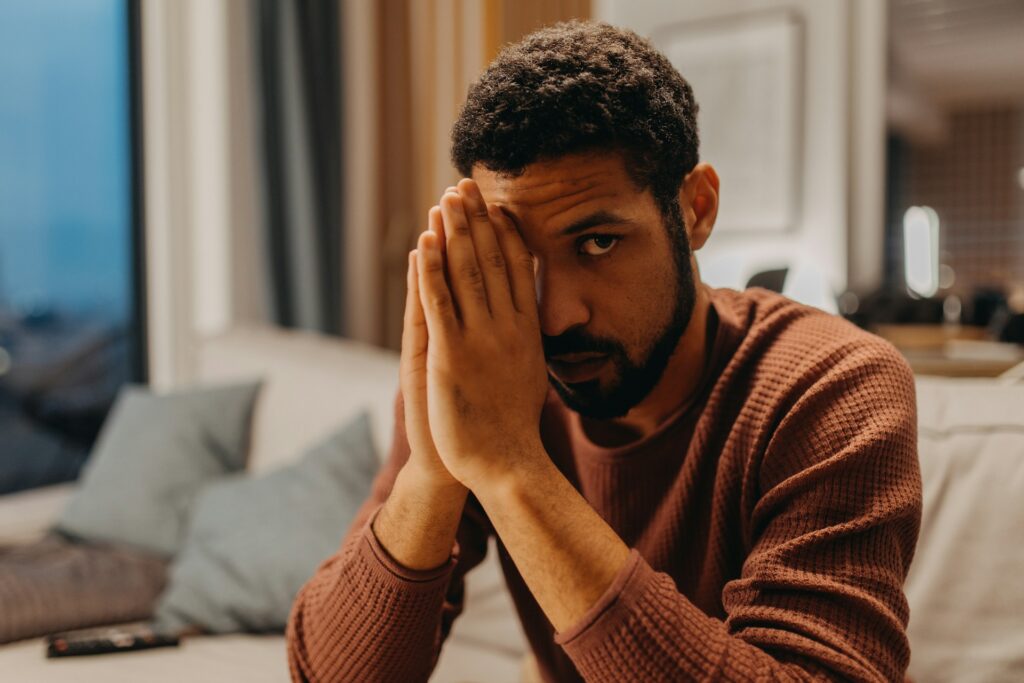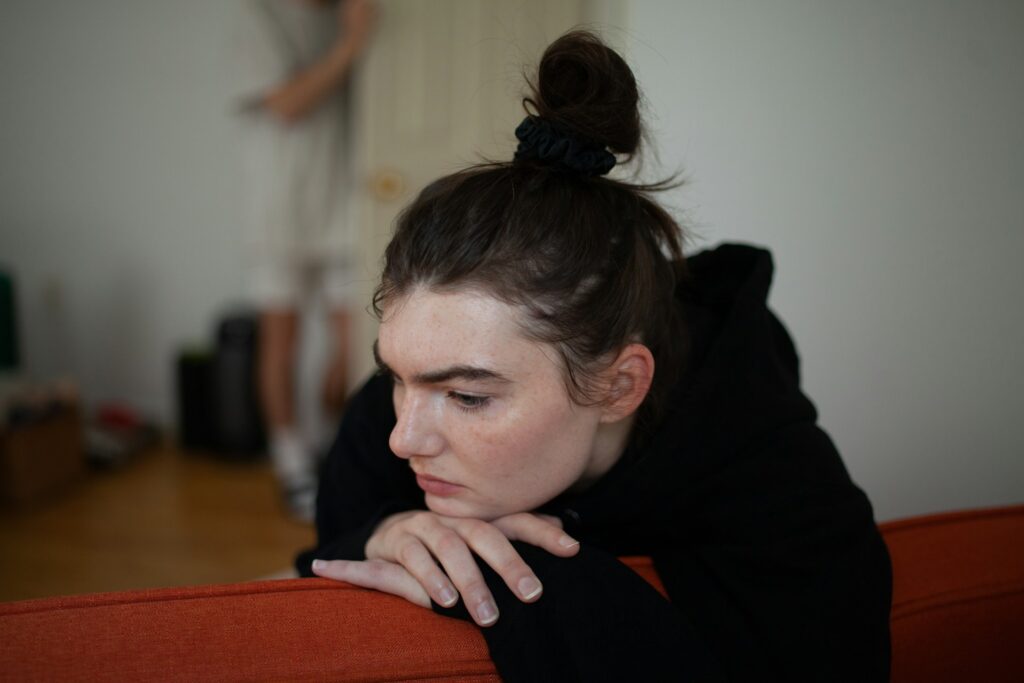Living with fear and anxiety goes way beyond just feeling a bit nervous and overwhelmed sometimes.

In reality, it’s a constant mental load — one that can shape how you move through the world, how you think, and how you see yourself. It’s not always visible, but for the person living it, it’s quietly exhausting. Here’s what this experience is like on nearly a daily basis for someone who suffers from these things. If that’s you, these will sound all too familiar.
1. Your mind never really feels quiet.

There’s always some kind of background noise — a loop of “what ifs,” worst-case scenarios, or reminders of what might go wrong. Even when you’re relaxing, your brain keeps scanning for potential threats, convincing you there’s always something to fix, check, or worry about.
It’s mentally exhausting because there’s rarely a break. You could be watching a film, eating dinner, or talking to a friend, and still feel like part of your brain is somewhere else — trying to keep you safe from things that haven’t even happened.
2. Normal tasks feel harder than they should.

Things other people seem to do without a second thought, like replying to messages, making a phone call, or walking into a crowded room, can feel overwhelming when anxiety is running the show. It’s not that you don’t want to do them, it’s that your brain is constantly warning you of invisible risks.
This can lead to avoiding things that matter to you, not out of laziness but from mental overload. And even when you do push through, it often doesn’t feel like a win, just temporary relief before the next wave hits.
3. You overthink everything, even the small stuff.

Conversations replay in your head long after they’re over. You pick apart what you said, how you said it, whether you came across weird, and what the other person really meant. Even little decisions, like what to wear or how to word a text, can spiral into over-analysis.
It’s not about being indecisive, it’s about trying to avoid judgement, rejection, or making a mistake. Anxiety convinces you that every tiny thing carries weight, so your brain treats everything like it matters a bit too much.
4. Fear shows up even when there’s no reason.

You could be sitting in a safe room with nothing obviously wrong and still feel that sense of dread crawling in. Fear doesn’t always wait for a reason. It just appears, tightens your chest, and tells your body it’s time to panic without warning.
This disconnect between your surroundings and your reaction can make you feel like something’s wrong with you. But really, it’s just your nervous system being stuck in high-alert mode, even when the danger isn’t real.
5. Your body feels tense more often than not.

Living with anxiety doesn’t just affect your mind; it stays in your shoulders, your jaw, your stomach. You might feel jumpy, restless, or unable to fully relax, even when nothing’s happening. Your muscles stay tight, as if you’re bracing for impact. It becomes easy to forget what real rest even feels like. You’re so used to being in this state of readiness that calm starts to feel foreign, or even suspicious. It’s like your body’s forgotten how to fully switch off.
6. You feel misunderstood, even by people who love you.

From the outside, you might look like you’re functioning fine — smiling, working, holding conversations. But inside, you’re carrying so much that it hurts. It’s hard to explain why small things hit hard or why you shut down when things get overwhelming.
You’re not trying to be distant or dramatic; you’re just trying to manage something invisible. And when people don’t understand it, you can start to feel like you’re alone in it, even when you’re not physically alone at all.
7. You plan for everything, and still don’t feel prepared.

Anxiety often makes you hyper-organised or overly prepared because you’re trying to control the outcome. You plan conversations in your head, rehearse different scenarios, and mentally scan for ways things might go wrong. But no matter how much you plan, the fear doesn’t always ease.
This can leave you feeling frustrated with yourself, like you’ve done everything right and still don’t feel safe. It’s not about being a perfectionist, it’s about trying to protect yourself from discomfort that feels unbearable.
8. You question your instincts constantly.

When anxiety is in the driver’s seat, it becomes hard to tell what’s fear and what’s intuition. You might feel like you can’t trust your own gut anymore, because anxiety makes everything feel like a warning sign. Even when things are good, part of you is waiting for the catch.
This can create a lot of self-doubt and hesitation. You start second-guessing decisions, relationships, and even moments of joy because anxiety keeps whispering that it’s too good to last, or that you’ve missed something important.
9. You feel guilty for not being more “normal.”

You might look around and wonder why everyone else seems fine while you’re fighting invisible battles every day. That comparison leads to guilt — guilt for cancelling plans, for overreacting, for needing more rest, for just trying to get through the day.
It’s a quiet shame that builds up, even though deep down you know it’s not your fault. You’re not lazy or overdramatic; you’re just tired from carrying something that takes so much out of you without anyone seeing the full weight of it.
10. Even good days come with a side of fear.

When you finally have a calm moment or a good day, it’s hard to enjoy it fully. You might feel relief, but also worry about when the anxiety will come back. It’s like waiting for the other shoe to drop, like peace isn’t something you get to trust yet.
This makes happiness feel fleeting, even when you’re craving it. Anxiety doesn’t always let you settle into the good. It keeps you scanning the horizon, even on the days when the sky is finally clear.


